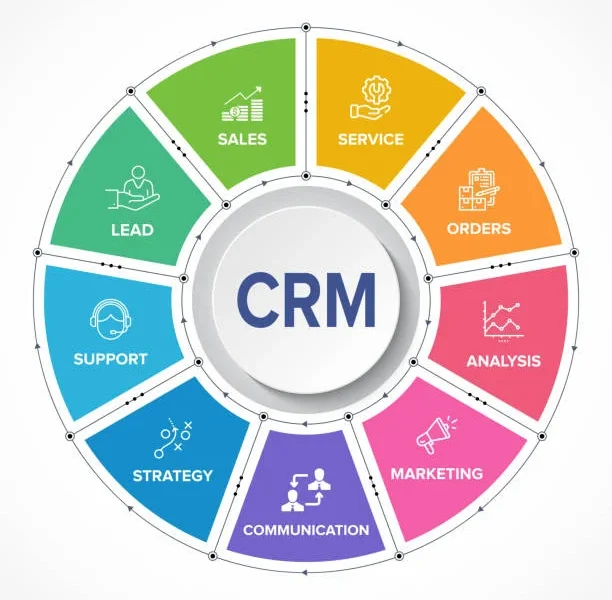In the digital age where businesses thrive on customer relationships, a robust Customer Relationship Management (CRM) system is not just a nice-to-have but a necessity. With the right CRM in place, organizations can gain a comprehensive understanding of their customers, enhance communication, automate processes, improve lead generation, and ultimately drive business growth. Understanding the key features of an effective CRM system is crucial for businesses looking to maximize their customer interactions and achieve success.
What Makes a CRM System Effective?
User-Friendliness and Ease of Use
A good CRM system should be intuitive and easy to use for all users, regardless of their technical expertise. This means that the interface should be clear, concise, and easy to navigate. It should also be customizable, allowing users to tailor the system to their specific needs and preferences.
| Feature | Description |
|---|---|
| Intuitive Interface | The system should be easy to understand and use, with clear navigation and menus. |
| Customization Options | Users should be able to personalize the system to meet their individual requirements, such as creating custom dashboards, reports, and workflows. |
| Mobile Accessibility | The CRM should be accessible from any device, including smartphones and tablets, enabling users to stay connected and manage their tasks on the go. |
Comprehensive Functionality
A comprehensive CRM system should offer a wide range of features to support various aspects of customer relationship management. This includes modules for sales, marketing, customer service, and more.
| Module | Description |
|---|---|
| Sales Automation | Features like lead management, opportunity tracking, and sales forecasting to streamline sales processes. |
| Marketing Automation | Tools for email marketing, social media management, and campaign tracking to engage and nurture prospects. |
| Customer Service Management | Features for managing customer inquiries, resolving issues, and tracking customer interactions to enhance support. |
| Reporting and Analytics | Dashboards and reports to provide insights into customer behavior, sales performance, and marketing effectiveness. |
Integration and Data Management
A good CRM system should seamlessly integrate with other business applications, such as email marketing platforms, accounting software, and e-commerce systems. It should also provide robust data management capabilities to ensure data accuracy, consistency, and security.
| Feature | Description |
|---|---|
| API Integrations | The system should have an API that allows for seamless integration with other business tools. |
| Data Security and Privacy | The CRM should adhere to industry-standard security protocols and comply with data privacy regulations. |
| Data Backup and Recovery | Regular data backups and disaster recovery plans are essential to protect against data loss. |
Essential Characteristics of an Effective CRM System
Customer Relationship Management (CRM) and its Importance
Customer Relationship Management (CRM) is a pivotal aspect of any business that aims to cultivate and nurture long-lasting relationships with its clientele. It encompasses a suite of strategies, tools, and technologies that enable companies to effectively manage interactions with their customers, from initial contact to ongoing engagement. The ultimate goal of CRM is to enhance customer satisfaction, drive loyalty, and ultimately foster business growth. A well-implemented CRM system empowers organizations to understand their customers’ needs and preferences, tailor their communications and offerings accordingly, and ultimately deliver exceptional experiences that solidify customer relationships.
Data Management and Centralization
A robust CRM system excels at data management and centralization. It effectively consolidates customer information from various sources into a single, unified database. This comprehensive repository houses all vital details, including contact information, purchase history, communication records, preferences, and feedback. By centralizing this data, CRM systems eliminate redundancy and ensure consistency across all departments, enabling employees to access a complete picture of each customer at any given time. This streamlined data access facilitates informed decision-making, personalized interactions, and targeted marketing campaigns.
Automation and Efficiency
One of the most significant advantages of a good CRM system is its ability to automate repetitive tasks and streamline processes. This automation extends to various aspects of customer interactions, including lead generation, qualification, follow-up, and support. By automating these tasks, businesses free up their teams to focus on more strategic initiatives that drive value. CRM systems employ workflows and rules-based automation to ensure that processes are executed consistently and efficiently, minimizing errors and maximizing productivity.
Sales Force Enablement
A good CRM system empowers sales teams to effectively manage leads, nurture prospects, and close deals. It provides sales professionals with a centralized view of customer information, allowing them to tailor their approach based on individual needs and preferences. CRM systems often include features such as lead scoring, pipeline management, and forecasting, which help sales teams prioritize their efforts and track progress. Additionally, they facilitate communication and collaboration among sales team members, fostering a cohesive and results-oriented environment.
Analytics and Reporting
Data-driven insights are crucial for making informed business decisions, and a good CRM system provides powerful analytics and reporting capabilities. CRM systems gather data on customer interactions, sales performance, marketing campaigns, and other relevant metrics. By analyzing this data, businesses can identify trends, measure the effectiveness of their strategies, and optimize their operations. Comprehensive reporting features enable organizations to track key performance indicators (KPIs), identify areas for improvement, and demonstrate the value of their CRM investment.
Frequent questions
What is the most important feature in a CRM system?
The most important feature in a CRM system is customization. A good CRM should be able to adapt to the specific needs of your business, rather than forcing you to adapt to its limitations. This means that the CRM should be able to be configured to track the information that is most important to you, and to automate the processes that are most relevant to your business. For example, a CRM for a sales team might need to track different information than a CRM for a customer service team. A good CRM will allow you to customize the system to meet the specific needs of each team.
How do I know if a CRM system is right for my business?
There are a few key things to consider when deciding if a CRM system is right for your business. First, you need to consider the size and complexity of your business. If you are a small business with a limited number of customers, a simple CRM system might be all you need. However, if you are a larger business with a complex customer base, you will likely need a more robust CRM system. Second, you need to consider your budget. CRM systems can range in price from a few hundred dollars per month to several thousand dollars per month. Finally, you need to consider your specific business needs. What kind of information do you need to track? What processes do you need to automate? Once you have answered these questions, you can start to narrow down your choices and find the CRM system that is right for your business.
What are the benefits of using a CRM system?
There are many benefits to using a CRM system, including:
Improved customer relationships: A CRM system can help you to better understand your customers and their needs. This information can then be used to improve your customer service and build stronger relationships.
Increased sales: A CRM system can help you to identify and target potential customers, and to track your sales pipeline. This can lead to increased sales and revenue.
Improved efficiency: A CRM system can help you to automate many of your business processes, such as marketing campaigns, customer service inquiries, and sales follow-ups. This can free up your time and allow you to focus on more strategic tasks.
Enhanced data analysis: A CRM system can help you to gather and analyze data about your customers and your business. This data can be used to make informed decisions about your business strategy and to improve your overall performance.
What are some popular CRM systems available?
There are many popular CRM systems available on the market. Some of the most popular include:
Salesforce: Salesforce is a cloud-based CRM system that is popular with businesses of all sizes. It offers a wide range of features and is known for its scalability.
HubSpot: HubSpot is a CRM system that is designed for small and medium-sized businesses. It is known for its ease of use and its focus on marketing and sales automation.
Microsoft Dynamics 365: Microsoft Dynamics 365 is a CRM system that is designed for businesses of all sizes. It is known for its integration with other Microsoft products and its powerful analytics features.
Zoho CRM: Zoho CRM is a cloud-based CRM system that is popular with businesses of all sizes. It offers a wide range of features at a relatively affordable price.
Pipedrive: Pipedrive is a CRM system that is designed for sales teams. It is known for its intuitive interface and its focus on sales pipeline management.
It’s important to research and compare different CRM systems to find the one that best fits your specific needs and budget.

